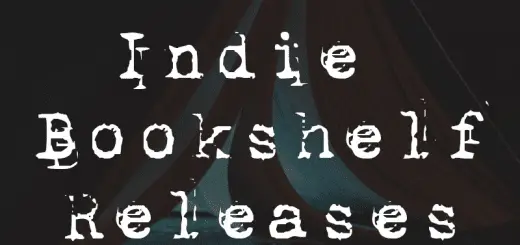10 Alternate Psychological Concepts

The word TOP 10 written in vintage metal letterpress type on a soft backlit background.
As part of a writing discussion group, I recently did a brief summary of what a psychopath and a sociopath actually are. (Why me? Long story, but it involves some studied I did in one of my university degrees…) Anyway, these two character types often appear in horrors and thrillers (even if the details are usually completely misguided) and seem to be the dominant psychological tropes that occur. Sure, there are some others – amnesia, kleptomania, various phobias, megalomania (especially in the mad doctor vein) – but there are so many more that could surely make a great basis for a horror story.
Now, before I start, I do not consider the autism spectrum disorders as psychological. They are a part of neurodiversity. The same can be said of Downs Syndrome. And, as far as I am concerned, those who identify with any aspects of the LGBTI+ (LGBTIQQAA) community do not deserve to be placed here either. I’m also going to try to steer away from things that lend themselves a little too much to pornography.
This is not going to be a list of phobias and philias, either, though some will appear. These are psychological devices I think could be well utilised in good horror or thriller stories. And, as is the nature of these columns, here are 10 if them I think are seriously worth considering.
1) Déjà vu
What? The strange feeling that what you are going through now you’ve already been through before. It’s not amnesia, as you remember it, but it is the feeling you are reliving a part of your life.
Possibilities: What if the déjà vu was real and the MC had experienced it before? What if s/he was being set up to think they had experienced it before? Yes, you could go into full Groundhog Day territory (great film, by the way), but what if it was more subtle than that? The same people on the same corners? Same words being spoken? But enough changes you know you’re not reliving the same day over and over. Some intriguing possibilities here.
2) Zoanthropy
What? The delusion that one is actually a non-human animal.
Possibilities: This is when a person honestly thinks they are an animal, not just identifies with an animal or believes they change into one. And it involves real animals, not mythical/mythological ones. How would a person cope if their loved one came to develop Zoanthropy? What would go through the afflicted person’s mind? How would they start to see the world around them? This seems to open itself up to some deep psychological explorations.
3) Xenorexia
What? The compulsive desire to swallow non-food objects. Could be specific objects – dirt is surprisingly common – to anything non-food.
Possibilities: While it is not good to make fun of or victimise those afflicted by psychological issues, a person suffering from this could well be a nice, low-key villain. Or they could add an extreme complication to the hero’s quest to do whatever it is the hero has been set to do in the story. It can lead, obviously, to some pretty severe physiological effects as well. What would a hero have to do to cope if s/he had this issue? While maybe not a driving force, it would definitely add a really interesting layer to a character.
4) Acathexis
What? When a person exhibits a distinct lack of emotional response towards something that should be considered of considerable importance.
Possibilities: This would be an absolutely fascinating character trait in an MC. The inability to feel strong emotion gives rise to the question: How would they be motivated to do something that was going to change the story/world they lived in? It is not a complete lack of emotion, but that there is a lack of emotion in a crisis. An example might be a person who is annoyed on September 12 because he can’t get to work, the Twin Towers falling having no effect on him. Sometimes it is a response because the magnitude of the event cannot be absorbed; sometimes it is a long-term psychological factor where large life events just do not register. That could be a really different MC.
5) Traumatophilia
What? When a person seems to be unusually accident-prone. This is not general clumsiness or being unco-ordinated (as I put my hand up here in embarrassment), but describes people who seem to repeatedly put themselves into situations in which something goes wrong, resulting in injury to themselves or others. Despite the name, it is generally accepted there is no sexual element to it.
Possibilities: A minor character, a really bizarre MC, a henchperson of the villain – this character could appear just about everywhere. It should also be said they do not want to commit suicide, just hurt themselves. Objectives can be looking for sympathy, they feel they deserve pain, proving they are worthless, a need to be saved, whatever. There are so many possibilities in this one.
6) Scopophobia
What? The fear of being seen by others. Not just being spied on, but being seen, full stop.
Possibilities: Scopophobia is a very genuine form of social phobia, one that is apparently increasing as more and more people live their lives entirely online. However, if the victim of a big bad in a horror tale suffered from this, how would they let anyone know of their very real distress? If the antagonist knows this is a person’s fear, then they could constantly go about setting up situations where the person was put into a situation of being seen. Think: webcams in the house, the poor victim getting an email address and discovering their every movement was being broadcast. There would be a heightened sense of terror, compounded by the phobia. Like a modern day take on Audrey Hepburn’s classic turn in Wait Until Dark.
7) Capgras syndrome
What? This severe psychosis is marked by the delusion that ‘doubles’ have replaced persons whom one knows. Not an Invasion Of The Body Snatchers situation where it is real, but the delusion that that is the case.
Possibilities: The person suffering from this could be quite a hindrance to any story. Maybe they could see their own doppelganger and that could just heighten their paranoia. What I would not want to see, however, is for the delusion to be true in the end – everyone really replaced by doubles. I think that would diminish the true horror of Capgras syndrome and make it just another “they’ve come and taken us over” bog-standard sci-fi/horror story.
(There is a related delusion: Mignon delusion. This is a surprisingly common childhood fantasy that one’s ‘real’ parents are famous, illustrious persons who will eventually come to rescue them from their current lives. Unfortunately, some do carry this on into adulthood, with horrible results on Dr Phil.)
8) Histrionic personality disorder
What? This personality disorder is characterised by immaturity, self-centredness, attention-getting, manipulativeness and quite often a vague seductiveness; such persons are overly dramatic, reactive and intense in their interpersonal relationships. (Come on, you know some-one like this…)
Possibilities: Look, characters like this have been a source of fun in 1980s teen comedies (I was a teen in the 1980s… I saw wa-a-ay too many of these films to be healthy), but to transport a person like that into a horror story could be intriguing. In that case, they should not just be the victim everyone is happy to see killed off, but the person being stalked all the way through, with their former behaviours meaning they are not taken seriously or are treated derisively. Writing a person like this so that in the end there is sympathy for them could be a good writing exercise.
9) Omnipotence of thought
What? This is the belief that one’s wishes, hopes or thoughts can affect external reality. It is actually common as a developmental stage of childhood, where it is referred to as ‘magical thinking’.
Possibilities: Unlike Capgras syndrome, this is one where the intriguing thing might be “what if it was real?” A person could well think it was happening, be slowly talked around that it wasn’t – and this is tough because they will deny proof that says they are wrong; it’s a part of the psychological implications of the disorder – but then people realise that maybe s/he is affecting the world around them by their thoughts alone. Subtle creepy terror is imminent.
10) Parataxic distortion
What? This is when a person has a distorted view of reality brought about by inferring a causal relationship between events that are actually independent.
Possibility: Actually, we’re seeing this all the time in the real world.
Sorry.
My bad.
Writers, try challenging yourself. Give your characters something beyond the normal psychological issues we see and read all the friggin’ time. Some of these might be a little different, and give your work that difference that could make it stand out. And the characters these lead to could well become unique and saleable. In my opinion (caveat!), of course.
Good writing!
- About the Author
- Latest Posts
S.Gepp is an Australian who has been writing for a number of years primarily in the horror, fantasy, sci-fi and humour genres. Tertiary educated, former acrobat and professional wrestler, a father of two and well past 40 years old, he hopes to be a real writer when he grows up.
His latest book is available here: https://www.amazon.com/Sins-Fathers-S-Gepp-ebook/dp/B07XBDP2RF/.











